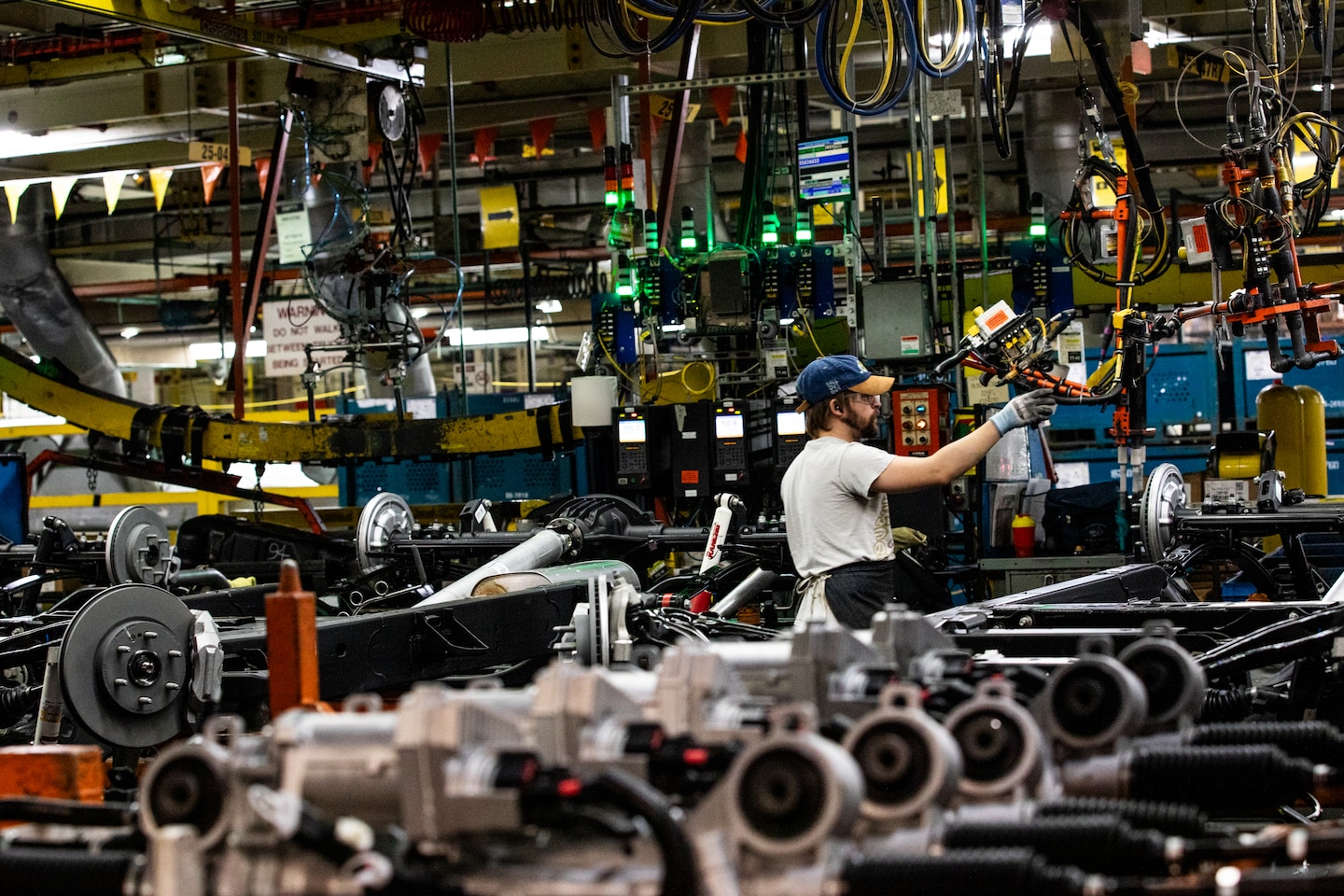President Donald Trump’s tariffs on Chinese goods aimed at revitalizing U.S. manufacturing are encountering challenges, as American factories heavily rely on machinery and components from China. The escalating trade battle between the world’s two largest economies has caused significant disruptions in global supply chains and affected the stock market. While Trump argues that these tariffs will usher in a ‘golden age’ for U.S. manufacturing, trade experts and companies suggest that they may complicate efforts to bring back certain industries. The U.S. economy depends on Chinese tools for producing various goods, including cars and electronics. Susan Helper, an economist at Case Western Reserve University, noted that the U.S. machinery sector is not in great shape and that China holds substantial capacity in many industries. The rising cost of industrial machines due to tariffs exemplifies the economic uncertainty caused by the trade war, emphasizing the interdependence of the U.S. and Chinese economies. Over the past decade, China’s machinery industry has achieved global dominance, with exports more than doubling since 2015. Although Germany has traditionally led in advanced machinery, China has rapidly closed the gap. China is the largest machine exporter globally, and the U.S. is its largest importer. However, the U.S.’s dependence on Chinese tools might be underestimated, as many machines are made with Chinese parts even when imported from other countries. Richard Baldwin, a professor at IMD Business School, refers to this as ‘hidden exposure.’ He found that machinery is one of the U.S. industries most dependent on China. Components like bearings, gears, and hydraulic systems are primarily sourced from China. Additionally, Beijing has imposed export restrictions on rare-earth minerals crucial for U.S. industries. Some Chinese manufacturers with plans to expand in the U.S. are reconsidering due to tariffs, potentially doubling investment costs. The uncertainty surrounding tariffs complicates business decisions for manufacturers. Wen Han, founder of Windrose Technology, paused purchasing decisions to navigate tariff fluctuations. Baldwin emphasized the need for strategic thinking in bringing manufacturing back to the U.S., noting it’s a long-term plan. Meanwhile, Chinese machinery companies are exploring markets without trade barriers, such as Southeast Asia and Africa. Chen Bin, deputy director of the China Machinery Industry Federation’s expert committee, remains optimistic about exports despite the trade tensions, citing efforts to expand in emerging markets and enhance product competitiveness.
— new from The Washington Post
